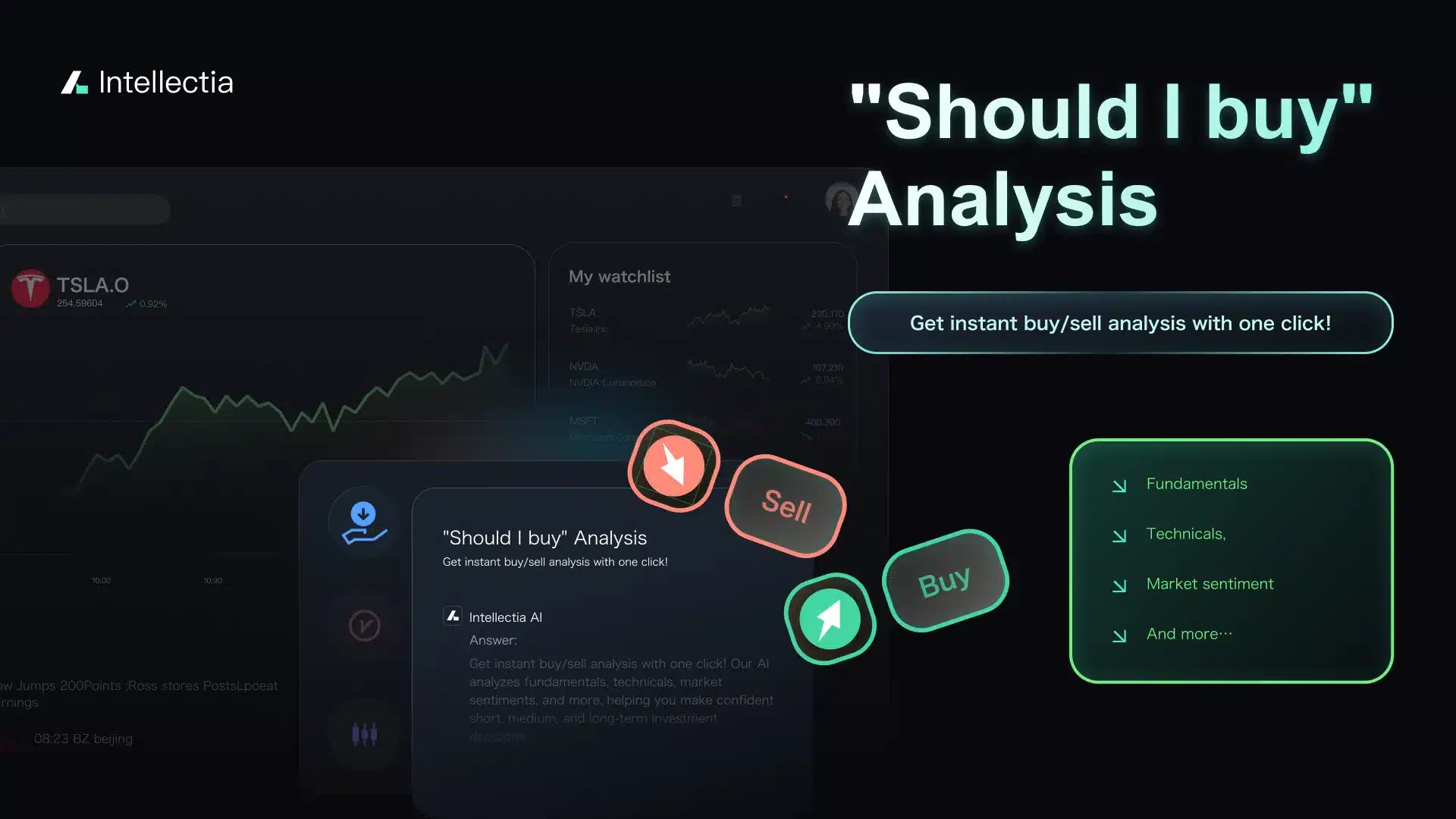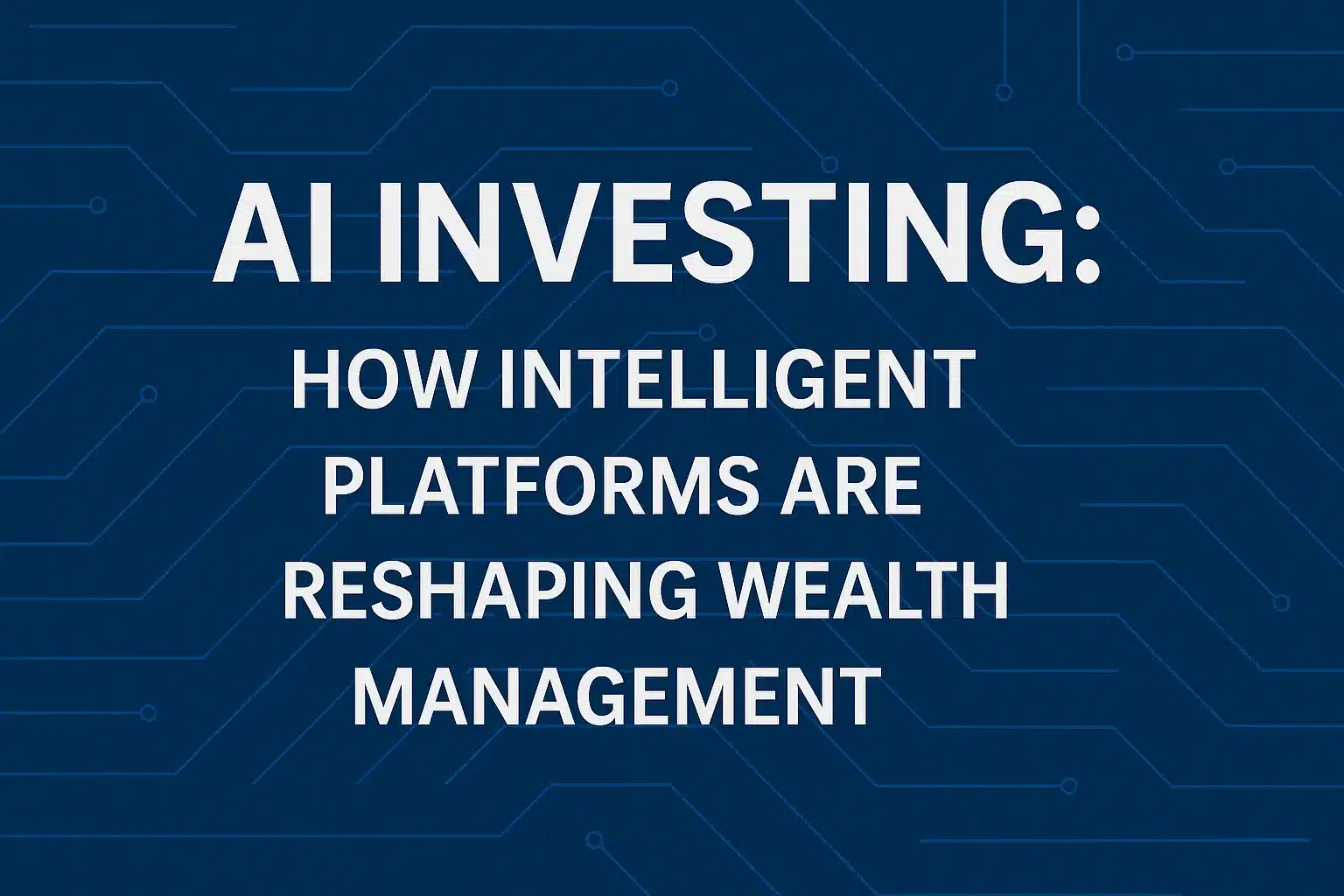Artificial intelligence is redefining the world of wealth management. What started as algorithmic trading for hedge funds has now become embedded in tools accessible to independent investors, financial advisors, and family offices. The rise of AI investing in investment platforms is shifting how portfolios are built, decisions are made, and strategies are refined.
No longer confined to static risk profiles or backward-looking analytics, today’s platforms offer adaptive, data-driven insights that evolve with markets and user goals. From strategy simulation to sentiment analysis, AI is changing the way people invest. It is doing so without removing the human touch.
The Shift Toward AI-augmented Investing

Traditional portfolio management relied heavily on manual research, subjective judgment, and static assumptions. Even with digital brokers and robo-advisors, most platforms remained simplistic. They rebalanced portfolios based on broad asset class rules or asked users a few onboarding questions and offered pre-built solutions.
Platforms that use AI investing now go further. They combine real-time data feeds, predictive modelling, and continuous learning algorithms to adapt investment recommendations in line with market changes and user behaviour. These tools help investors:
- Screen and test strategies quickly
- Analyse macroeconomic indicators and alternative data
- Simulate outcomes across multiple risk and return scenarios
- Monitor portfolios with smart alerts and explainable diagnostics
Importantly, the goal is not to automate everything. It is to enhance decision-making. AI supports investors by surfacing opportunities, highlighting risks, and saving time. This is particularly useful when managing complex or multi-asset portfolios.
Decision Support, Not Decision Replacement

While some early AI applications tried to fully automate investing, the real promise lies in augmentation. Most investors, whether individuals or professionals, want tools that assist rather than replace them. Platforms that succeed in this space are designed for collaboration between human expertise and machine learning.
This approach is gaining traction in both retail and institutional markets. Wealth managers want to scale personalised advice across clients without reducing quality. Family offices seek global, macro-informed allocation tools without hiring large research teams. Independent investors want to feel confident in their choices without spending hours on spreadsheets.
AI platforms are meeting that demand by delivering tailored insights at scale. The best tools allow users to refine assumptions, adjust risk preferences, and test outcomes across historical or hypothetical conditions. This level of flexibility is critical in a volatile investment environment.
A Real-World Example: Intellectia’s AI Investment Platform
One example of this new generation of investment platforms is Intellectia. Built from the ground up as an AI-native solution, Intellectia aims to empower discretionary investors, family offices, and wealth professionals with dynamic intelligence.
Unlike robo-advisors that rely on pre-programmed allocation models, Intellectia provides a suite of tools to build, test, and monitor investment strategies. Users can explore opportunities across asset classes, simulate future returns under various economic conditions, and receive proactive alerts tied to changes in their portfolio’s context.
What sets Intellectia apart is its use of explainable AI. Every recommendation is accompanied by a rationale. Whether it is a shift in inflation expectations, a change in equity volatility, or a deviation from target risk levels, the platform helps users understand the reason behind its suggestions. This transparency builds trust. It is especially useful for advisors who need to explain decisions to clients or align with compliance standards.
In a world of increasing automation, explainability is a competitive advantage. Investors want clarity, not just complexity.
From Static Portfolios to Living Strategies

Another key shift enabled by AI platforms is the transition from fixed portfolio models to adaptive strategy frameworks. Instead of setting allocations once a year and hoping for the best, investors can now manage portfolios that evolve in real time.
AI-driven platforms support:
- Economic scenario testing, such as modelling how portfolios react to rate cuts or political shocks
- Behavioural analysis to understand how investor habits affect returns
- Adaptive rebalancing to respond quickly to shifting correlations or market conditions
These tools are especially valuable for investors managing wealth across generations or time horizons. For example, a family office may want to balance short-term liquidity needs with long-term capital preservation. AI platforms make it easier to simulate these trade-offs and make informed decisions.
Intellectia enables this shift by offering a blend of traditional finance theory and modern machine learning. Its interface is designed for those who want to engage with strategy, not just pick a model and leave it alone.
AI for Personalised Investing at Scale

Personalisation has long been a goal in wealth management. Historically, this meant customised portfolios designed by private bankers or in-house analysts. AI changes the game by making personalisation scalable.
Modern AI investment platforms can:
- Identify user preferences, such as ESG priorities, sector interests, and time horizon
- Track behaviour over time and adjust recommendations accordingly
- Blend quantitative models with qualitative inputs to match user intent
For example, if a user consistently prioritises capital preservation, the platform can offer strategies that balance inflation protection and downside risk. If another investor prefers thematic exposure in areas such as clean energy or cybersecurity, the system can identify relevant, diversified investment options aligned with that theme.
These capabilities are not theoretical. Platforms like Intellectia already allow users to explore different strategy combinations, set custom parameters, and receive alerts when the portfolio drifts from their desired profile. As data becomes richer and models improve, this level of personalisation will deepen further.
Transparency, Trust, and the Role of Explainable AI

For all the potential of AI, trust remains a crucial factor in adoption. Investors need to understand how platforms arrive at conclusions, especially when real capital is involved.
The most successful AI investment platforms are those that prioritise explainability. This includes:
- Showing users the factors that drive each recommendation
- Offering plain-language summaries alongside technical explanations
- Allowing users to override or fine-tune suggestions
This approach is not just a design preference. It is essential for compliance. In regulated markets, advisors must be able to justify their decisions. Platforms that help document and trace decisions make compliance easier to manage.
Intellectia’s focus on explainable AI reflects this demand. By offering full transparency on how strategies are constructed, what data informs them, and why certain recommendations are made, the platform makes it easier for both professionals and self-directed users to act with confidence.
A Future of Embedded Intelligence
The future of AI in investing is not limited to standalone platforms. Increasingly, AI capabilities are being embedded into broader financial ecosystems. Digital banks, trading platforms, and super apps are beginning to integrate investment intelligence into their core offerings.
This embedded approach allows users to:
- Access tailored insights while managing daily finances
- Automate cash flow into investment strategies aligned with their goals
- Receive nudges based on market movements or personal milestones
AI is also enabling new forms of collaboration. Advisors can co-manage portfolios with clients through shared dashboards that update in real time.
Multi-user interfaces allow families or teams to align more easily on investment goals and decisions. As these capabilities mature, investment platforms will become less about static tools and more about intelligent layers that surface the right insights at the right time.
Final Thoughts
Artificial intelligence is not a substitute for human insight or discipline. It is a powerful tool that enables faster, more personalised, and more transparent investing. By automating analysis, improving personalisation, and providing real-time support, AI platforms help investors act with greater clarity.
Platforms like Intellectia demonstrate what is now possible. They reflect a future where intelligent systems work alongside human decision-makers to improve investment outcomes. Whether you are an advisor managing a book of clients, a family office handling global complexity, or a retail investor refining your strategy, AI is now part of the toolkit.
The future belongs to those who can adapt and make smarter decisions with the help of intelligent technology. AI investment platforms are helping turn that future into reality.
















